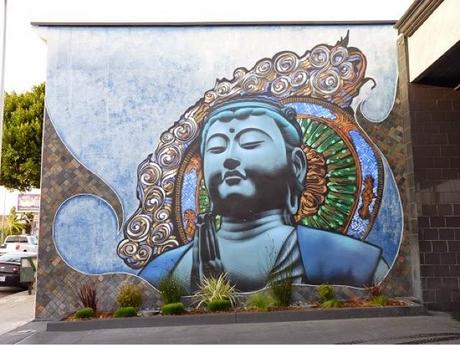"Om/Aum (ஓம்; in Tamil as ஓம், ॐ; in Devanagari as ओं oṁ [õː], औं auṃ [ə̃ũ], or ओ३म् om [õːːm]) is a mantra and mystical sound of Hindu origin (geographically India and Nepal), sacred and important in various Dharmic religions such as Hinduism, Buddhism, Sikhism and Jainism. The syllable is also referred to as omkara (ओंकार oṃkāra) or aumkara(औंकार auṃkāra), literally "om syllable", and in Sanskrit it is sometimes referred to as praṇava, literally "that which is sounded out loudly".
Om or Aum is also written ओ३म् (o̿m[õːːm]), where ३ is pluta ("three times as long"), indicating a length of three morae (that is, the time it takes to say three syllables)—an overlong nasalisedclose-mid back rounded vowel—though there are other enunciations adhered to in received traditions. It is placed at the beginning of most Hindu texts as a sacred incantation to be intoned at the beginning and end of a reading of the Vedas or prior to any prayer or mantra. It is used at the end of the invocation to the god being sacrificed to (anuvakya) as an invitation to and for the latter to partake of."
Om is foreign to most in the west but it is of paramount importance in Buddhism, Hinduism, Jainism and Sikhism. These are all ancient traditions which all trace their spiritual roots back to the Vedic traditions.
Of those Vedic traditions meditation is the defining practice that to me offers the most to us as Mormons or Christians because meditation can bring clarity and peace into our often chaotic lives.
There is a silhouette in India of a figure in the lotus position, a common meditative pose, which dates back to 2,000 bc.
This implies that meditation is a very ancient practice passed down from the Vedic tradition.
Om is a centering sound that has been key to meditation practices since such practices were recorded. Krishna says in the Bhagavad gita (7.8) that “I am the pranava, the syllable Om, which is the principal word in the Vedas.”
In the Bhagavad gita (8.13), Krishna states, “One who at the time of death, leaves his body, chanting the syllable ‘Om’ and thinking of Me, attains my supreme abode.” It is also mentioned in the Bhagavad gita (17.24) that the transcendentalists begin all activities of sacrifice, penance, and charity by chanting the transcendental sound Om.Om has deep meaning and by using this ancient mantra we can benefit from the practice of meditation. There are many mantras and many can work for us but Om has been preserved through the ages because there is something special about it.
Mantras help to focus the mind and to remind one of the sacred practice of meditation.
Studies have been done that prove prolonged prayer and meditation have the same effects on the mind and body. Meditation can be done without worshiping other Gods, it can be done to aid spiritual growth along with prayer.
And Biblical practices included meditation. And David O. McKay recommended meditation as well;
"I think we pay too little attention to the value of meditation, a principle of devotion. In our worship there are two elements: One is spiritual communion arising from our own meditation; the other, instruction from others, particularly from those who have authority to guide and instruct us. Of the two, the more profitable introspectively is meditation.
Meditation is the language of the soul. It is defined as "a form of private devotion or spiritual exercise, consisting in deep, continued reflection on some religious theme." Meditation is a form of prayer. We can say prayers without having any spiritual response. We can say prayers as the unrighteous king in Hamlet, who said: "My words fly up, my thoughts remain below: Words without thoughts never to heaven go." (William Shakespeare, Hamlet, Act III, scene 3.)
And in the Bible we find these references to meditation: "Finally, brethren, whatever things are true, whatever things are
noble, whatever things are just, whatever things are pure, whatever things are lovely, whatever things are of good report, if there is any virtue and if there is anything praiseworthy--meditate on these things." (Php 4:8) Paul clearly teaches us to "meditate on these things", and "meditation" is certainly a Biblical subject: Isaac meditated in the field at eventide - Gen 24:63 Joshua was charged by God to mediate "day and night" - Josh 1:8 The "blessed man" in Psalms 1 is one who meditates - Ps 1:1-2 David became wiser than his teachers through meditation - Ps 119:99 Paul commanded Timothy to "meditate on these things" - 1Ti 4:15Om is an eastern mantra but meditation seems to be universal in one version or another. We may learn and benefit from religious cross pollination.
Joseph Smith said this about truth; “Mormonism is Truth… One of the grand fundamental principles of Mormonism is to receive truth, let it come from whence it may. (Discourses of the Prophet Joseph Smith, p. 199)
Later, Joseph bolstered this sentiment with this statement, “We should gather all the good and true principles in the world and treasure them up, or we shall not come out true Mormons.” (Teachings of the Prophet Joseph Smith, p. 316).The power of Om is that it can unlock the power of God through meditative communion with Him.

